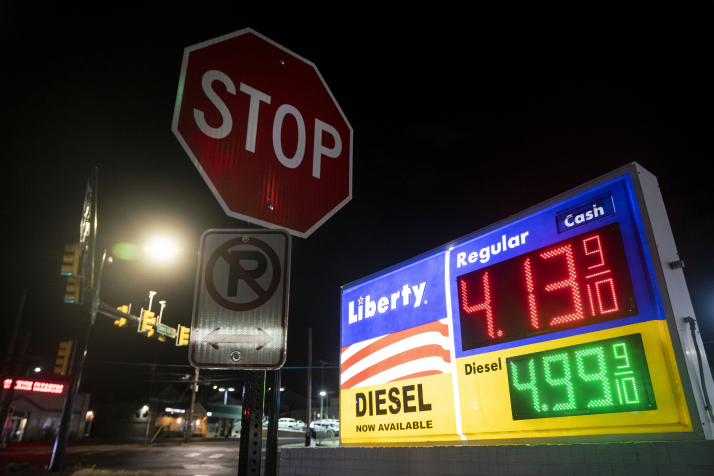The Supreme Sacrifice

As one of the world’s major carbon emitters, the U.S., too, must rise to the occasion and deliver on its promise to cut greenhouse gas emissions. Taking action against climate change should be considered a small sacrifice for the greater good to avoid future generations paying the ultimate price.
The United States Supreme Court ruled on June 30 that the Environmental Protection Agency (EPA) doesn’t have the authority to regulate greenhouse gas emissions from power plants or to demand existing power plants replace fossil fuels with renewables.
Fossil fuel power plants are the second largest source of pollution in the U.S., the world’s second largest carbon emitter. The Supreme Court’s verdict is likely to derail U.S. efforts to manage the threats of climate change and undermine people’s confidence in the commitment of President Joe Biden’s administration to cutting emissions.
Tackling the climate crisis was an ambitious point on Biden’s campaign agenda and remains a key policy of his current administration. In April last year, the president pledged to cut America’s emissions of greenhouse gases by at least 50 percent over 2005 levels and set the goal for an emissions-free power sector by 2035. But, as Bloomberg wrote on April 27, “A year after he promised to cut U.S. emissions in half by 2030, experts say the goal is virtually out of reach now.”
Climate change is among the rare areas where China and the U.S. are still working closely together, given that the Biden administration and the Chinese Government are of the same mind when it comes to the climate crisis, despite rising tensions between the two countries since former President Donald Trump dented the bilateral relationship.
Yet whereas China is doing the utmost to hit the two goals of peaking carbon emission and achieving carbon neutrality before 2030 and 2060, respectively, the U.S. seems to have fallen behind. Some people cite the separation of powers (executive, legislative and judicial) to justify the administration’s inaction and argue that the Biden administration opposes the Supreme Court’s decision.
This argument lacks conviction. Laws and politics are two peas in a pod. The Supreme Court’s verdict means to serve American interests. At a time when the U.S. is grappling with spiking inflation and economic slowdown, relaxing control over carbon emissions is a useful stimulus tool. When the Supreme Court decides to limit the EPA’s authority to regulate emissions, not only will the U.S. economy get a boost, but the Biden administration will manage to keep its reputation intact.

Moreover, the verdict centers more on economic than legal issues. In a 6-3 ruling, the Supreme Court’s conservative majority invoked the “major questions” doctrine, a concept that’s been percolating for decades but only now has been fleshed out. Chief Justice John Roberts said agencies “must point to clear congressional authorization” when undertaking policies of great “economic and political significance.”
The goal of carbon neutrality and peaking carbon emissions surely will cause huge losses to the Chinese economy, as many high-polluting and energy-intensive businesses will have to shut down. But in stark contrast to the American approach, China has never swayed its decision to cut emissions despite downgraded projections for economic growth. As one of the world’s major carbon emitters, the U.S., too, must rise to the occasion and deliver on its promise to cut greenhouse gas emissions. Taking action against climate change should be considered a small sacrifice for the greater good to avoid future generations paying the ultimate price.
Statistics from Rhodium Group, a New York-based independent research provider, show that greenhouse gas emissions by the U.S. in 2021 rose by 6.2 percent year on year, mainly stemming from increased coal power—up 17 percent over the past two years.
The U.S. Government used to take bold and swift action in this regard. The Clean Air Act of 1963 grants the EPA the authority to formulate regulations and oversee the states’ plan enforcement. In 2014, President Barack Obama’s administration proposed the Clean Power Plan, demanding all existing power plants reduce their carbon emissions. The plan was scheduled to take effect in 2022, but the Supreme Court’s verdict has reduced it to a mere scrap of paper. That’s one reduction the world wasn’t waiting for.
 Facebook
Facebook
 Twitter
Twitter
 Linkedin
Linkedin
 Google +
Google +










